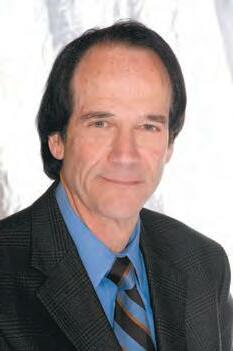
2 minute read
Ann Arbor Congregants Ordered to Pay Protesters’ Legal Fees
OUR COMMUNITY
Ann Arbor Congregants Ordered to Pay Protesters’ Legal Fees
Advertisement
Plaintiffs’ attorney vows to fight ruling.
RACHEL SWEET ASSOCIATE EDITOR
Attorney Marc Susselman says it’s not over yet after two years of legal battles between a group of protesters who have targeted a local shul in Ann Arbor for nearly two decades. A federal judge ruled Jan. 25 that two members of the congregation will have to pay the protesters more than $150,000 in legal fees.
“The whole decision is totally wrong, and I believe it will be reversed,” Susselman said.
Susselman is the lead attorney who has worked with congregants of Congregation Beth Israel in Ann Arbor, which included Marvin Gerber and Dr. Miriam Brysk, a local Holocaust survivor, who filed a federal lawsuit in 2019.
However, the battle between the protesters and the Conservative congregation has been going on for much longer. For 18 years, a small group of people has picketed outside the congregation with antisemitic and anti-Israel signs along Washtenaw Avenue.
U.S. District Court Judge Victoria Roberts ruled that the plaintiffs Gerber and Brysk, along with attorney Susselman, are responsible for the protesters’ attorney fees for pursuing meritless and frivolous claims. Responding to the ruling in a phone conversation with the Jewish News, Susselman says Judge Roberts ruling is wrong and he will file an appeal.
“If the court cannot determine how much time it spent on standing versus the rest, the cost is unable to be awarded to any of these because they’re not held to attorneys’ fees on standing because they lost … yet she goes ahead and award them fees on standing.”
Standing is the legal term which determines if a party bringing the lawsuit has the right to do so.
In 2020, Roberts ruled that the plaintiffs did not have standing to sue, adding in her ruling that the conduct was protected by the First Amendment, and dismissed the lawsuit. After an appeal, a federal appeals court in 2021 ruled that the protests were protected by the First Amendment.
A week before Roberts’ ruling on attorneys’ fees, Susselman appealed the lawsuit’s dismissal to the U.S. Supreme Court, calling the ruling “a reversible error” and disputing the court’s claim that the lawsuit was frivolous.
“I’m hoping they’ll grant the petition and recognize that antisemitic speech in front of a house of worship for 18 years is not protected by the First Amendment,” Susselman told the Jewish Telegraphic Agency. His plaintiff’s case, he said, rested on the idea that, outside a house of worship, “you can’t mingle hate speech with speech that is protected.”
Now the decision sits with the Supreme Court. “I’m optimistic the Supreme Court is going to grant my petition,” Susselman told the JN.










